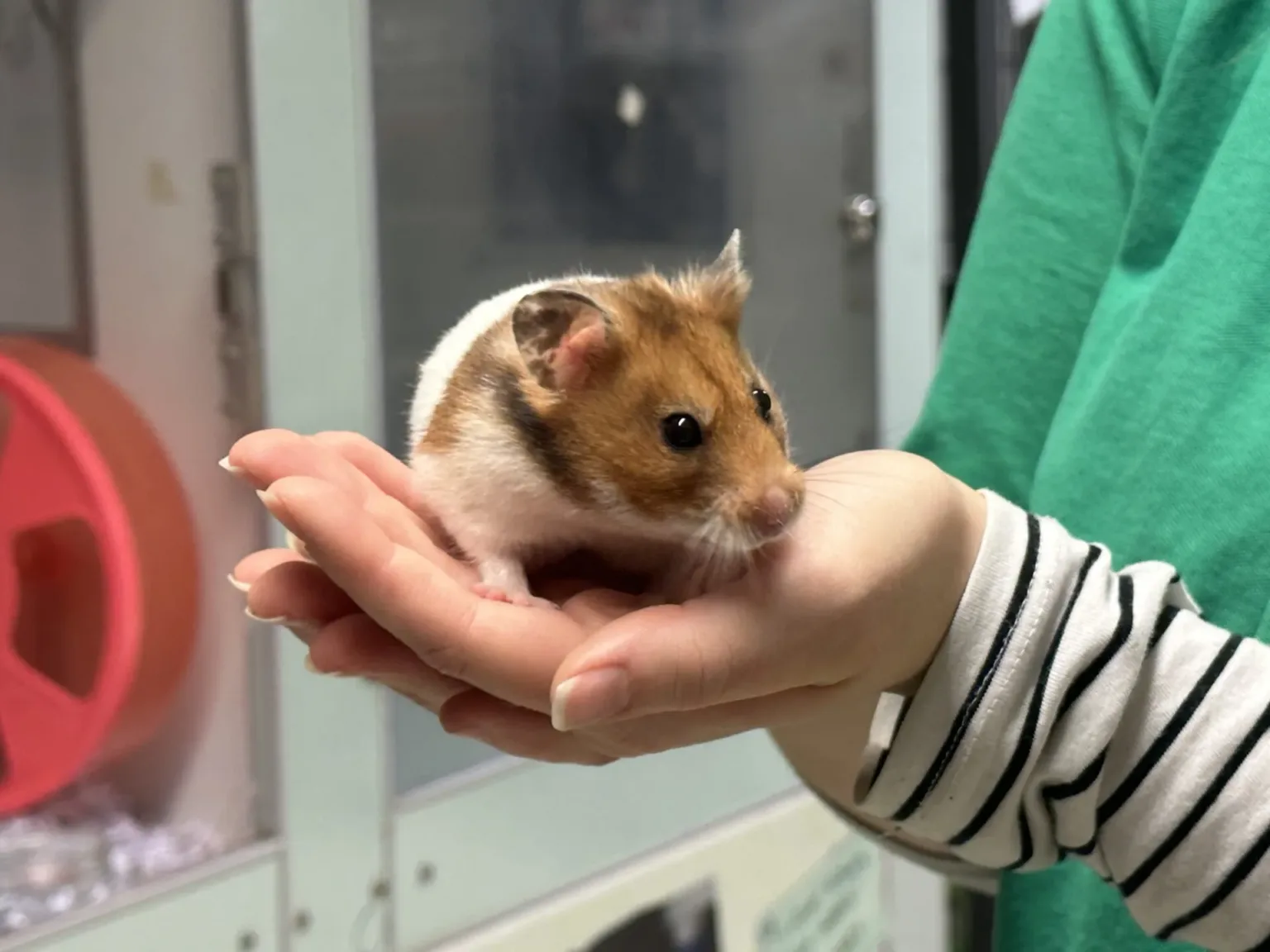Fireworks: how to keep your pets safe
Find out how to recognise fear in your pets and keep them safe and happy.

Hamsters are omnivores, which means they eat both meat and vegetables. Feeding your hamster an appropriate diet with good quality ingredients will provide the essential nutrients they need to thrive.
Finding an appropriate complete dried food mix for your hamster can be tricky, but there are some good ones that can be found online. Look for the following:
You can also place a selection of seed sprays around their enclosure to give some variety, such as:
Syrian – around 10g (one tablespoon) of dried food per day.
Chinese, Dwarf and Roborovski – around 5-8g (one teaspoon) of dried food per day.
Hamsters are natural born foragers and will spend hours digging through bedding and searching through their cage looking for food. To avoid your hamster becoming obese and bored, scatter their daily allowance around the enclosure rather than feeding in a bowl.
Providing your hamster fresh water every day is really important. Many hamsters prefer to drink from a bowl (such as this one*). Bottles are perfectly suitable and can be provided alongside a bowl, but they can be tricky to keep clean and often leak. Make sure your hamster can easily reach the spout by having it close to the base of the cage, or place toys underneath that they can easily climb on to reach it.
Colourful chew sticks, mineral and salt blocks can be potentially harmful. Instead, stick to healthy, natural food options, alongside their weekly diet.
Avoid feeding in large amounts – around the size of their ear a couple of times a week will be fine:
If a link has an * by it, that means it is an affiliate link. By using these links, it might result in a small payment to Woodgreen as the retailer will be able to see that woodgreen.org.uk was the referring website. This helps keep our pet advice available to everyone, and our support services available for those who need them most.
Any products or services we recommend always remains independently chosen by our pet experts. When we link out to a recommended product, for example a type of harness or feeder, we are recommending the individual product, not any particular retailer. Read our affiliates FAQ for more details
Neither Woodgreen, or the affiliate networks we use collect any personal data through these links.